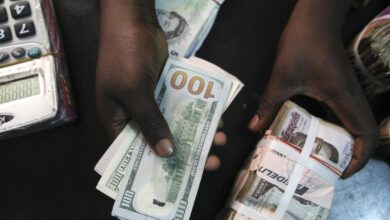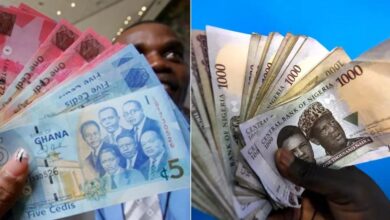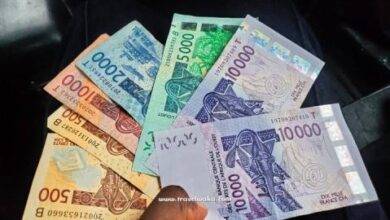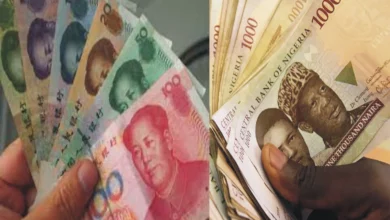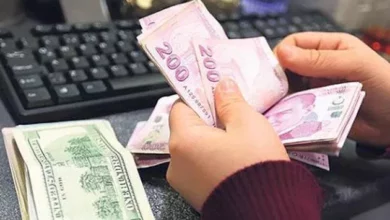Aboki Forex Dollar to Naira Black Market Exchange Rate Today
Dollar to Naira Official and Aboki Forex Black Market Exchange Rate Today
The dollar to naira black market exchange rate is the rate at which the Nigerian naira is exchanged for the US dollar on the black market.
The black market is an unofficial market where currencies are bought and sold at rates that differ from the official rates.
The black market exchange rate is typically higher than the official exchange rate, as there is a greater demand for dollars on the black market.
The black market exchange rate is also more volatile, as the Nigerian Central Bank does not control it.
This blog post will provide you with the latest dollar-to-naira black market exchange rate.
The Dollar Currency
The dollar is the primary currency in the United States and its territories. It is also the second most traded currency in the world.
The dollar is made up of 100 cents and is divided into denominations of $1, $5, $10, $20, $50, and $100.
The dollar is a floating currency, which means its value is based on supply and demand. The most common factor that affects the value of the dollar is inflation.
When inflation goes up, the value of the dollar goes down. The U.S. government can also impact the dollar’s value by printing more money or raising interest rates.
The dollar is an important part of the global economy and is used by many countries as a reserve currency.
A reserve currency is a currency that is held in large quantities by central banks and other major financial institutions.
Dollar to Naira Black Market Exchange Rate Today
This is the rate at which Aboki/Bureau De Change (BDC) is selling and buying US dollars in Abuja, Kano, and Lagos. There may be minor differences in parallel (unofficial) markets.
Dollars to Naira (USD to NGN) – Black Market Exchange Rate Today
Buying Rate – 730
Selling Rate – 750
Dollars to Naira (USD to NGN) – Official CBN Exchange Rate Today
Buying Rate – 444.31
Selling Rate – 445.31
Factors affecting the exchange rate of the Dollar to Naira
Here are some of the reasons for the dollar-to-naira exchange rate’s decline.
Inflation Rates: It is widely known that inflation directly impacts black market exchange rates. The naira will gain if the Nigerian economy can be stabilized and inflation is kept under control.
Trade Conditions: Although Nigeria is currently running a trade deficit, favorable trade terms will boost the naira’s value against the dollar.
Interest Rates: Interest rates are another tool to keep an eye on. If the interest rate at which banks lend money rises, the economy will decrease, and the value of the naira will fall as a result.
Political uncertainty: Political uncertainty can weaken the local currency as investors become less willing to invest in the economy.
On the other hand, greater levels of political stability can lead to a stronger local currency as investor confidence increases.
Government debt can potentially affect investor confidence and, as a result, the flow of capital into the economy. If inflows are high, the naira exchange rate will climb in its favor.
Market forces such as supply and demand can also affect the Dollar to Naira Black Market Exchange Rate Today, when there is more demand for Nigerian Naira than there is supply, the price of the local currency increases.
Conversely, the price decreases when there is more supply than demand for the local currency.
Speculators: Speculators have a significant impact on the naira-to-dollar exchange rate. They hoard money in anticipation of a profit, pushing the naira even further.
Countries That Use Dollar
The US Dollar is also used in many other countries as a form of legal tender and can be exchanged for local currency at different rates.
Several countries around the world use the US Dollar (USD) as their primary currency. Some of these countries are:
- American Samoa
- British Virgin Islands
- Ecuador
- El Salvador
- Guam
- East Timor
- Marshall Islands
- Federated States of Micronesia
- Palau
- Northern Mariana Islands
- Puerto Rico
- Turks and Caicos Islands
- United States of America
- Virgin Islands
- British Indian Ocean
- Caribbean Netherlands
Dollar to Naira Black Market Exchange Rate FAQS
What is 1$ to Naira in black market?
The dollar to naira exchange rate in the parallel market ranges from 730 to 750 with an average of 738.75 naira per dollar as of today in Nigeria.
What is black market exchange rate?
Black market exchange rates are currency conversions that are not based on the official supplied exchange rate that a government has established.
These unofficial exchange rates are frequently observed in situations in which the official rate has a poor correlation with the realities of the market.
How much is 100 dollar in Nigeria black market today?
On the black market right now, one hundred dollars is worth 74,000 Naira.
How much is 1$ in black market?
On this day, USD is being traded at a price of 740 in the Black Market in Lagos.
How much is CBN selling dollar today?
The current exchange rate for U.S. dollars at the Central Bank of Nigeria is 445.31 per dollar.
How can I buy dollars directly from CBN?
It is not possible for a person to simply stroll into the Central Bank of Nigeria and purchase US dollars.
The CBN’s current policy prohibits this; only commercial banks and Bureau de Change operators can purchase dollars and other foreign currency from the CBN.
If you intend to visit any of the CBN branches to purchase US dollars, you will be disappointed because they will not sell them to you.
The CBN, as the central bank, exclusively regulates the activity of all Nigerian commercial banks; they do not service individuals, hence a person cannot own a bank account with the CBN.
Can I buy dollars from the bank?
Yes, you can buy US dollars from any commercial bank or Bureau de Change operator.
Conclusion
In conclusion, the dollar to naira black market exchange rate is determined by some factors.
These include the dollar’s demand and supply, the naira’s demand and supply, the central bank’s rate, and the market’s speculation.
The black market rate is usually different from the central bank’s rate and can fluctuate significantly.
